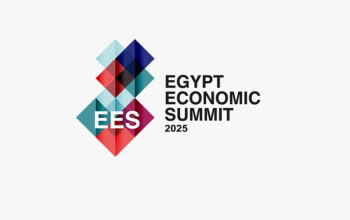UAE, December 7, 2024: The inclusion of Saudi Arabia and the UAE in BRICS marks a strategic shift for the group’s economy, contributing over $3 trillion to its national output. The two countries play a pivotal role in the group due to their vast resources, such as oil and energy, as well as their significant geopolitical influence within BRICS.
A recent research paper by the Interregional Strategic Analysis Center, based in Abu Dhabi, emphasized that Saudi Arabia and the UAE have solidified BRICS’ position since their official accession in January 2024. Attention is now focused on the active role these countries will play during the upcoming summit in Brazil in early 2025, particularly in achieving a global economic balance that offers substantial opportunities for member states.
Saudi Arabia and the UAE officially joined BRICS, along with Egypt, Iran, and Ethiopia, from January 1, 2024, following an official invitation at the BRICS summit held in South Africa in August 2023. The member countries—Brazil, Russia, India, China, and South Africa—agreed to expand the group to include these new nations.
According to Interregional, this expansion has strengthened the group’s global influence, particularly in energy trade, as the alliance now includes the largest energy producers—Saudi Arabia and the UAE—and major consumers from emerging nations. The expansion is expected to enhance the economies and trade of these countries.
BRICS offers its members several key economic benefits:
- Facilitates trade between member countries using local currencies, boosting intra-group investments and reducing costs tied to currency fluctuations.
- Provides financing for infrastructure and development projects in member countries and other developing nations through the BRICS New Development Bank.
- Allows for the development of cooperation strategies that contribute to energy market stability and security, involving large energy producers like Saudi Arabia, the UAE, and Russia.
- Enables the creation of a more balanced global economic system by reducing the dominance of traditional major economies like the G7.
- Promotes knowledge and technology exchange, particularly in areas like renewable energy, agriculture, and industry.
- Expands export markets and investments, enhancing the international competitiveness of member economies.
Interregional emphasized that BRICS aims to strengthen its members’ international economic relations and achieve sustainable development, paving the way for a more pluralistic and fair global economic system, especially after the official inclusion of six more countries from January 2024: Saudi Arabia, the UAE, Egypt, Iran, Argentina (which later withdrew due to internal political changes), and Ethiopia.
Interregional further noted that the UAE and Saudi Arabia will play a critical role in supporting BRICS’ success through various strategic and economic aspects, including enhancing joint investments. With their substantial financial resources, they are well-positioned to contribute significantly to infrastructure and development projects within BRICS countries, aligning with the group’s goals of supporting sustainable development, such as renewable energy projects and industrial development.
Additionally, Saudi Arabia and the UAE will play a key role in energy policies within BRICS, with ambitious plans to invest in clean energy and green hydrogen—areas of significant interest for BRICS. Both countries are also focused on boosting intra-group trade, strengthening BRICS’ role in global trade, especially with the UAE’s global financial hub and investment market, which can enhance the group’s financial mechanisms like the New Development Bank (NDB). Saudi Arabia’s Vision 2030 also aims to develop capital markets that can complement the group’s economic objectives.
Interregional highlighted that the strategic location and diplomatic role of Saudi Arabia and the UAE make them gateways to the Middle East and North Africa markets, enhancing their diplomatic and regional power, which helps stabilize and secure relationships between BRICS countries and others. With their economic power and geopolitical position, these countries are considered a valuable addition to BRICS, supporting the group’s goals of sustainable economic development and enhanced cooperation between emerging economies.
BRICS’ growing importance in the global economy is evident as the group now represents over 45% of the world’s population, with economies exceeding $28.5 trillion—28% of global GDP. This surpasses the G7’s share, which holds 10% of the world’s population and 26% of the global economy. Statistics also indicate that trade within BRICS grew by 14% in 2023, reaching approximately $683.5 billion.








